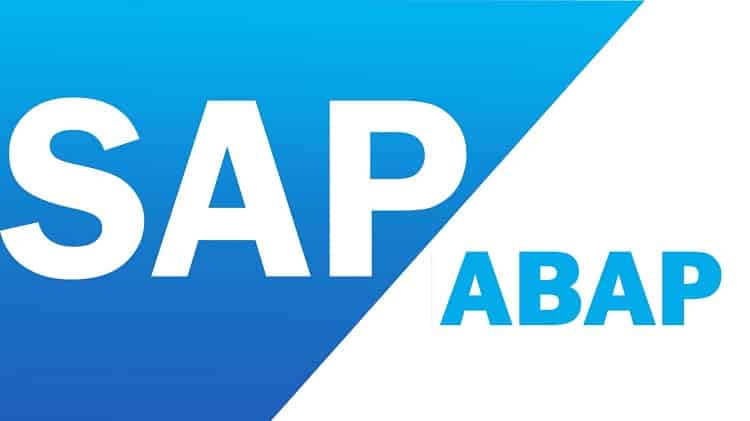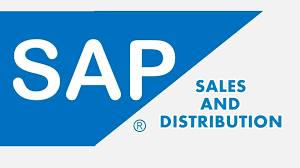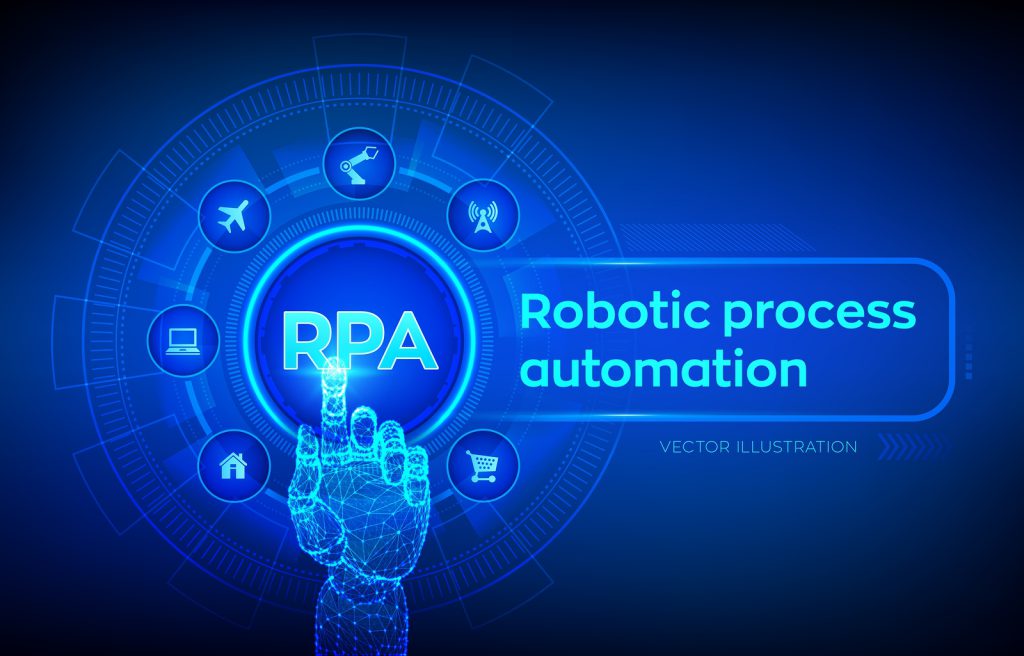
Available courses
ABAP Programming for SAP
ABAP (Advanced Business Application Programming) is the name of SAP’s proprietary, fourth-generation programming language. It was specifically developed to allow the mass-processing of data in SAP business applications.
By working with ABAP in SAP NetWeaver, companies running the SAP ERP and SAP S/4HANA business solutions have the opportunity to customize those systems to better meet their needs.
ABAP is a multi-paradigm programming language, meaning programmers can utilize procedural, object-oriented, and other programming principles. While it is SAP’s primary programming language, programs written with ABAP can run alongside those based on other programming languages such as Java, JavaScript, and SAPUI5.

What is SAP SD (Sales and Distribution?)
SAP SD (Sales and Distribution) is one of the functional modules of SAP ERP SAP SD module helps to store all of an organization's product data. It helps to maintain and manage the shipping, pricing, selling, billing, and transportation of products and services.

- Teacher: Gopu Mohan
What is SAP?
Stand for Systems Applications and Products in Data Processing
SAP software was founded in 1972 by Wellenreuther, Hoop, Hector, Plattner, and Tschira.
SAP system consists of a number of fully integrated modules, which cover virtually every aspect of business management.
Importance :
In data processing SAP is the most form for systems, applications, and products.
Most of the companies considered that the SAP solution has an extremely vital factor for their business. Many companies widely use the SAP system for daily operations and reporting.
SAP brings systems, modern and extremely efficient.


- Teacher: Nidheesh Kumar
- Teacher: Sanoop V
Syllabus
Introduction to Python
What is python?, python identifiers, keywords, statement, operators, literals, data types, if statement, if else statement, if elif else statement, nested if statement, for loop, for loop with else, while loop, while loop with else, break, continue and pass, conditional statement, python string, list, tuple, set, dictionary operations, python functions and modules: lambda function, class creation, object creation, object functions, numpy, pandas
Basic Statistical methods
What is Statistics?, Descriptive and Inferential methods, some distributions and applications, estimation and testing procedures, accuracy, precision, variance and bias, estimator, least squares, residuals, mean square errors, cost or loss function
Introduction to Data Science and Machine Learning
What is Data Science? Importance, Uses, data science life cycle, components, What is Machine learning?, supervised learning and unsupervised learning.
Supervised Learning methods
Linear regression and regularization, implementation of linear regression, lasso regression, ridge regression and their implementations, Multiple linear regression, polynomial regression and implementations, Logistic regression: Normal distribution, Random distribution, Logistic Function, Logit function, Implementations, confusion matrix, K-fold cross validation, leave one out, gradient descent, feature extraction and preprocessing.
Unsupervised Learning methods
Classification methods: KNN classification, Naive Bayes classification, and implementations(Iris data set), Clustering methods: K means clustering, Hierarchical clustering, Dimensionality reduction: Principal Component Analysis(PCA), PCA for face recognition, Singular Value Decomposition(SVD), applications.
Artificial Intelligence(AI) and Deep Learning(DL)
Types, ways of achieving AI, applications, case study: if a person has diabetes or not, Deep learning: introduction, neural networks: Artificial Neural Network(ANN), Convolutional Neural Network(CNN), Recurrent Neural Network(RNN)

- Teacher: Nithin Chandran
- Teacher: Jay Moorchilot
1. German comes from the same language
family as English
German and English are both ‘West Germanic languages’ and share similar language DNA. This means that as an English speaker, you’re going to have a much easier time to learn German. In fact, over 26% of English vocabulary has shared roots with German, from grammar structure to vocabulary.
2. Make more money
According to the Economist, German learners will have an accumulated bonus earnings of 125,000 euros. Just by learning the language. As an economic powerhouse, Germany is the largest European trading partner with the United States and many other nations around the world.
3. University in German is free!
Getting a decent education in the US costs upwards of $20,000 a year, but it’s nearly free in Germany. Some institutions charge a few hundred dollars per semester, but that’s a fraction of what most are used to paying.
want a free education? Learn German!
4. Open new career opportunities
Given the attractiveness of this country, companies from around the world are seeking out German speakers. In fact, just about any major international corporation will have some affiliation with Germany.
But most importantly, German powerhouses like BMW, Volkswagen, Adidas, and Lufthansa are all established around the world.
5. Get in the linguistic mindset of the world’s greatest innovators
Freud, Beethoven, Nietzsche, Mozart. Any of these rings a bell?
It should because they’re world’s greatest thinkers, innovators, and leaders in our lifetime. Now, we’re not saying that learning German will turn you into a Mozart (although, who knows :))
However, you’ll be able to understand more of their creative and thinking process by learning the language.
6. Discover a completely new Internet
Just after Russian, German is one of the top languages written on the Internet. More precisely, around 6% of the Internet.
This is especially important if you have or plan to have an online presence. Forgetting about your German speakers will mean you’re neglecting millions of potential audience members! At one point, the domain .de used to be only second to .com.
7. German is the second most common language used in Science
At one point in the 20th century, German was the official language used in the world of Science. However, given the events of WWII, German scientists were ostracized from the community.
German remains as the second most important language in the industry, despite these circumstances. Learning the language will give you an advantage if you’re serious about making a difference in the field.
8. Adopt a new way to connect and travel
Germans are literally everywhere. Even within the US, over 15% of Americans have German heritage which is over 60M people in the USA alone!
More importantly, because the average income in Germany is higher than most other countries, many of them travel abroad. It’s likely that wherever you go in Europe, North America, and other parts around the world, you’ll run into a German speaker.
9. Berlin is a hot spot for entrepreneurs
Looking to build the next billion-dollar app and disrupt an industry? If you’re an entrepreneur, digital nomad, or an ambitious professional looking to strike gold in the startup industry, welcome to Berlin. The European market is ripe for disruption and begging for new ideas to come to fruition.
As the economic powerhouse of Europe, starting your company in Germany is likely going to give you the highest chance of success. Especially in Berlin.
10. Grow your business!
Or maybe you already have a business (or you’re working for one) that’s already thriving in your local market. If you’re looking to expand, there’s plenty of business to grab in lovely Germany.
11. The culture of widely recognized globally
Does Oktoberfest ring a bell? How about a BMW? Or sausages?
From food, events, to globally recognized brands, German culture is widely adopted around the world. It’s a force to be reckoned with. By learning the language, you’ll start to become part of this culture as well.
12. Enjoy German cuisine in a different way
The next time you go to a German restaurant, you can feel like a local instead of an outsider. Many German restaurants make it a priority to keep it as authentic as possible by hiring German servers. You can try to impress your friends or just feel at home by speaking with them in German.
13. Most common language used in the European Union
Given the economic powerhouse and control that Germany has in Europe, it’s also the language of choice in the European Union. If politics is a future for you, German is a great bet to place your investment in.
14. 1 out of 10 books in the world are written in German
Hey bookworms! Did you know that there’s more to books than ones written in the English language? As we mentioned above, some of the greatest thinkers and artists are from Germany. There’s a whole new world for you to discover in the world of books.
Why Learn German? 15 is only the beginning
There are endless reasons to learn German in our opinion, and 15 is doing a disservice to this beautiful language. There are certainly more benefits that we have not yet mentioned beyond making more money, finding a new internet, and changing how you travel. Although, those are convincing reasons to learn German.
We encourage you to explore beyond the reasons we’ve provided above, and ask yourself: “Why learn German”

What you'll learn
- Understand what Robotic Process Automation (RPA) is
- See an RPA demo
- Understand why RPA is a massive career & earning opportunity
- Know which RPA tools are most relevant
- Understand the challenges & risks when implementing RPA
- Envision a basic RPA implementation plan


